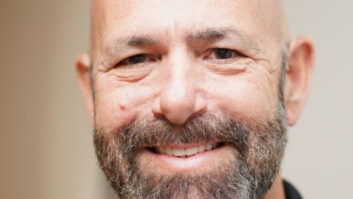FARMINGDALE, N.Y. – P.C. Richard & Son celebrated its 103rd birthday earlier this month.
That’s no mean feat for any business, but even more so for a CE and appliance chain that fought its way up in the grueling New York metro market. Challenges laid not only in the Big Apple’s arguably tougher consumers and cutthroat competition, but in its daunting terrain of high-rise apartment buildings and sprawling suburbs, which would tax any delivery, installation and repair fleet.
Yet here it is, 66 stores strong across four states with well more than $1.2 billion in annual sales, and one of just a handful of survivors of a bruising retail scene that numbered such heavyweights as The Wiz, Crazy Eddie, Tops Appliance City, Sixth Avenue Electronics, Newmark & Lewis, Bernie’s, Brick Church and Trader Horn.
“It’s a never-ending fight,” said fourth-generation scion and company president Gregg Richard. “Nobody deserves to be in business — you have to earn it. Probably the only reason we are still here is the relationship we have with the customer and the way we treat them. We continue to respect them and their time, and we continue to give them a reason to shop us.”
The customer credo can be traced back to the company’s roots as a Brooklyn hardware store opened in 1909 by Dutch immigrant Peter Christiaan Richard. His son, the late Alfred “A.J.” Richard, added radios and appliances to the mix and built a service and trucking operation to support them, while third-generation brothers Gary and Peter Richard led the metro area expansion that built the company into the regional powerhouse it is today. Indeed, at the company’s 100th anniversary gala in Manhattan in 2009, which featured a private performance by rocker Jon Bon Jovi, Gregg credited his father, CEO Gary Richard, with taking the company “to heights unimaginable” to his granddad A.J.
Gregg and the management team have since continued that legacy by developing a warehouse, distribution, training, service, office and retail complex in Central New Jersey that supplies the Garden State and a lone Philadelphia store, and by saturating Connecticut with seven locations that fill the vacuum left by Bernie’s, the 15-store A/V, majap and furniture chain that went belly-up two years ago.
Elsewhere during his tenure as president, P.C. Richard developed its own private-label brand, appropriately dubbed Generations, that began about three years ago with HDMI cables, TV mounting brackets and other accessories, and has since extended to fans, microwave ovens, room air conditioners and home-theater furniture.
“In certain categories, where consumers don’t have much of a brand preference, we saw an opportunity to create demand for our own brand, which we design with the customer in mind,” Richard said.
Unlike some private-label CE and appliance lines, Generations is not a price story, he explained. Rather, it offers quality merchandise with upgraded features, and keeping it in-house “allows us to control our own destiny.”
The chain also received a major merchandising boost with Apple’s recent authorization to carry first its handhelds and now its computers, which were added two months ago and are presently in four stores.
Meanwhile, the company is preparing for a sweeping re-launch of its website in early November that promises to be faster and vaster, and incorporates other enhancements culled from customer feedback.
“The Internet is a reality that has become a very important part of everyone’s business,” Richard observed. “It provides great selection, fair prices and the convenience of shopping from home.
“We’re making that convenience available to our customers,” he continued, “although we still prefer when they walk into our showroom, where we can provide a great experience with our knowledgeable and professional sales people.”
Like most businesses, P.C. Richard, a three-time winner of a TWICE Excellence In Retailing Award, has felt the impact of the recession. “We’re not growing 10 to 15 percent a year like we did in the past,” Richard acknowledged, “but we’re a strong company and we’re holding our own. We’re still growing, we’re still profitable, we have zero debt, and we still have the most important asset: an extremely loyal customer base.”
Much of the company’s stability reflects its stake in white goods, which comprises half of the business and is the seventh-largest majap operation in the nation. “It’s a needs-based business – people will always have to replace their appliances,” he said, as compared with CE, a “wants” business where new innovation is currently wanting.
Looking ahead, the company continues to explore new opportunities in product mix and market expansion, although no big moves are imminent. More importantly, Richard said, “we need to continue looking at our customer as our most important asset. We are always looking to improve their experience by improving our operations, merchandising and sales team, because as long as we give them a reason to shop us, our future is bright.”













